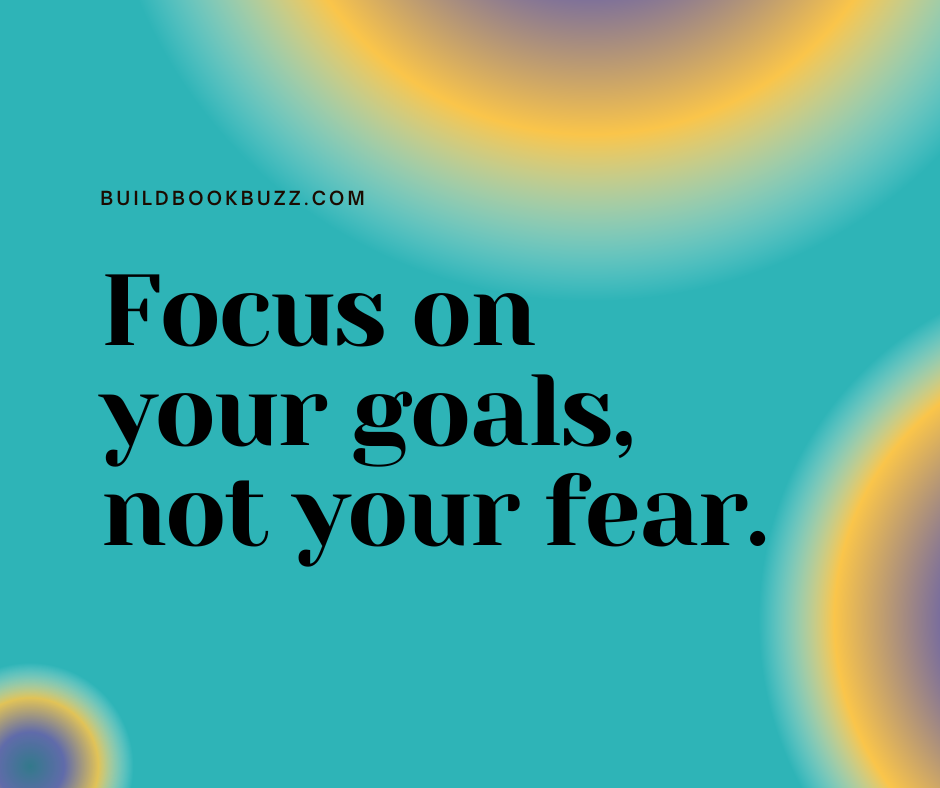Book marketing goals: How high will you take your book this year?
Learn what book marketing goals are (and aren’t), explore two popular frameworks, and see examples for fiction and nonfiction authors.
For many authors – especially those who come to publishing without business experience – book marketing can feel unfamiliar, uncomfortable, or even intimidating. You may love writing, revising, and researching, but setting marketing goals? That can feel like stepping into foreign territory.
Still, if you want your book to reach readers, goals matter. Not because they guarantee success (they don’t), but because they give you direction.
Without goals, marketing often becomes scattered: a social post here, a newsletter there, a vague hope that “something will work.”
Because we’re at the start of a new year, I’d like to take a closer look at what book marketing goals really are, what they’re not, and how to set goals that make sense for you – whether you’re publishing one book or many.
What goals are – and what they aren’t
Before we talk about frameworks and examples, it helps to clear up a few misconceptions.
What goals are
Book marketing goals are:
- Clear outcomes you want to work toward
- A way to focus your limited time and energy
- A guide for making decisions about what to do next – and what to skip
Good goals help you move forward instead of spinning your wheels. They give you direction.
For example, let’s say you’re considering trying a new tactic or platform. Return to your goals, first, and ask yourself, “Will this activity help me reach one of these goals?”
What goals aren’t
Goals are not:
- Wishes (“I hope my book sells well”)
- Guarantees (marketing never comes with certainty)
- A measure of your talent or worth as a writer
- Permanent – goals can and should change, especially as you learn more
If a goal stops serving you, it’s allowed to evolve. You’re in charge.
#Authors, learn what book marketing goals are (and aren’t), explore two popular goal-setting frameworks, and see 7 book marketing goal examples for fiction and nonfiction authors.Click to tweetTwo popular goal-setting frameworks
You don’t need an MBA to set useful goals. These two frameworks are popular because they’re practical and flexible – and you can use either one.
SMART goals
SMART goals are specific and concrete. The acronym stands for:
- Specific: Clearly defined
- Measurable: You can track progress
- Achievable: Realistic given your time and resources
- Relevant: Connected to your bigger purpose
- Time-bound: Attached to a deadline
For example, instead of saying, “I want more readers,” a SMART goal might be:
“Add 150 subscribers to my email list by the end of June.”
SMART goals work especially well for:
- First-time authors
- Book launches
- Anyone who likes clarity and structure
OKRs (objectives and key results)
OKRs stand for objectives and key results. Sounds kind of corporate, doesn’t it? But don’t let that scare you. This is simply a way to aim high while staying flexible. If you have a business background, you might be most comfortable with this approach.
- Objective: A big-picture goal
- Key Results: 2 to 4 measurable ways you’ll know you’re making progress
For example:
Objective: Increase visibility for my debut novel
Key Results:
- Appear on 5 podcasts
- Post weekly on one social platform
- Secure 25 new reader reviews
OKRs work well for:
- Long-term visibility
- Authors experimenting with different marketing tactics
- Anyone who prefers progress over perfection
I use the SMART approach, but I take it one step farther.
I break my big goals down into smaller goals. It’s a “smaller steps” approach that I find helps reduce overwhelm. Plus, it helps me create the blueprint I need to reach those goals.
Which framework should you use?
There’s no right answer. Choose the framework that feels most manageable right now.
If you’re publishing your first book and want clear direction, SMART goals may feel more comfortable. If you’re thinking bigger – building visibility or laying groundwork for future books – OKRs may be a better fit.
Authors often ask me how many goals to set. I think three is a manageable number for most of us. When you reach one of them, replace it with a new one.

Seven book marketing goal examples (and when they make sense)
Here are seven realistic, author-friendly book marketing goals. Each includes context so you can decide whether it fits your situation.
1. Grow an email list by a specific number.
Example: Add 200 subscribers in 6 months.
This goal makes sense for both fiction and nonfiction authors. An email list gives you a direct way to reach readers without relying on social media algorithms. It’s especially valuable for self-published authors.
2. Publish consistent content that supports book discovery.
Example: Publish two blog posts per month related to my book’s topic or genre.
This works well for authors who enjoy writing and want long-term discoverability. Nonfiction authors often use educational content, while fiction authors might write behind-the-scenes posts or reader-focused extras.
3. Schedule speaking or teaching engagements.
Example: Schedule 3 speaking engagements in the first 6 months of the year.
This is a strong goal for nonfiction authors and memoirists. Memoirs, in particular, invite personal connection, and audiences often want to hear directly from the author behind the story.
4. Appear as a podcast guest or in the media.
Example: Pitch myself to 12 podcasts this year.
Podcast guesting works well for both fiction and nonfiction authors who enjoy conversation and storytelling. It’s a way to reach targeted, engaged audiences without needing a large existing platform.
Media interviews are also important. They generate credibility that leads to new opportunities.
You’re essentially leveraging someone else’s network.
5. Generate reader reviews.
Example: Secure 50 reader reviews within 90 days of launch.
Reader reviews matter for visibility and credibility, especially on retail platforms. This goal makes sense for any author launching a new book or trying to revive interest in an existing one.
Remember, too, that it’s an ongoing process.
6. Strengthen long-term sales for a standalone or backlist book.
Example: Create one new marketing resource to support ongoing sales.
This might mean a reader guide, a bonus chapter as an email subscription incentive, or a refreshed book description. It’s a smart goal for authors who want steady, long-term results rather than short bursts of activity.
7. Focus marketing on one or two channels.
Example: Commit to showing up consistently on one social platform for 6 months.
Trying to be everywhere usually leads to burnout. This goal makes sense for authors who feel overwhelmed and want to simplify without giving up entirely.
Turning goals into a workable plan
Goals are helpful, but only if you connect them to action. A marketing plan helps you break goals into manageable steps so you know what to do next week, not just “someday.”
That’s where planning tools can make a real difference, especially if marketing doesn’t come naturally to you. ⬇️ ⬇️ ⬇️
If you’d like help turning your goals into a clear, doable plan, download your free Build Book Buzz Book Marketing Plan Template. It’s designed to help you organize ideas, choose priorities, and move forward without overwhelm.
Frequently asked questions about book marketing goals
1. What’s a SMART goal anyway?
It’s a goal that’s clear, measurable, doable, relevant, and has a deadline. Instead of “I want more readers,” try: “Add 150 email subscribers by the end of June.”
2. How are OKRs different from SMART goals?
Think of OKRs as your big-picture goal plus 2 to 4 measurable ways to track progress. They’re flexible, letting you experiment without stressing over perfection.
3. Can one goal work for both fiction and nonfiction?
Absolutely! Growing your email list, collecting reader reviews, or focusing on one social channel can apply to any author. Some goals, like speaking gigs, fit nonfiction or memoir writers better.
4. How often should I check my progress?
Monthly or quarterly check-ins work best. They let you see what’s working, tweak what isn’t, and keep moving forward without feeling stuck.
5. Do I have to stick to one goal-setting method?
Not at all. Pick the framework that works for you at the moment, and switch if needed. The “best” framework is the one you’ll actually use.
What’s one specific actionable goal you’re working toward for your book this year?
Like what you’re reading? Get it delivered to your inbox every week by subscribing to the free Build Book Buzz newsletter. You’ll also get my free “Top 5 Free Book Promotion Resources” cheat sheet immediately!

